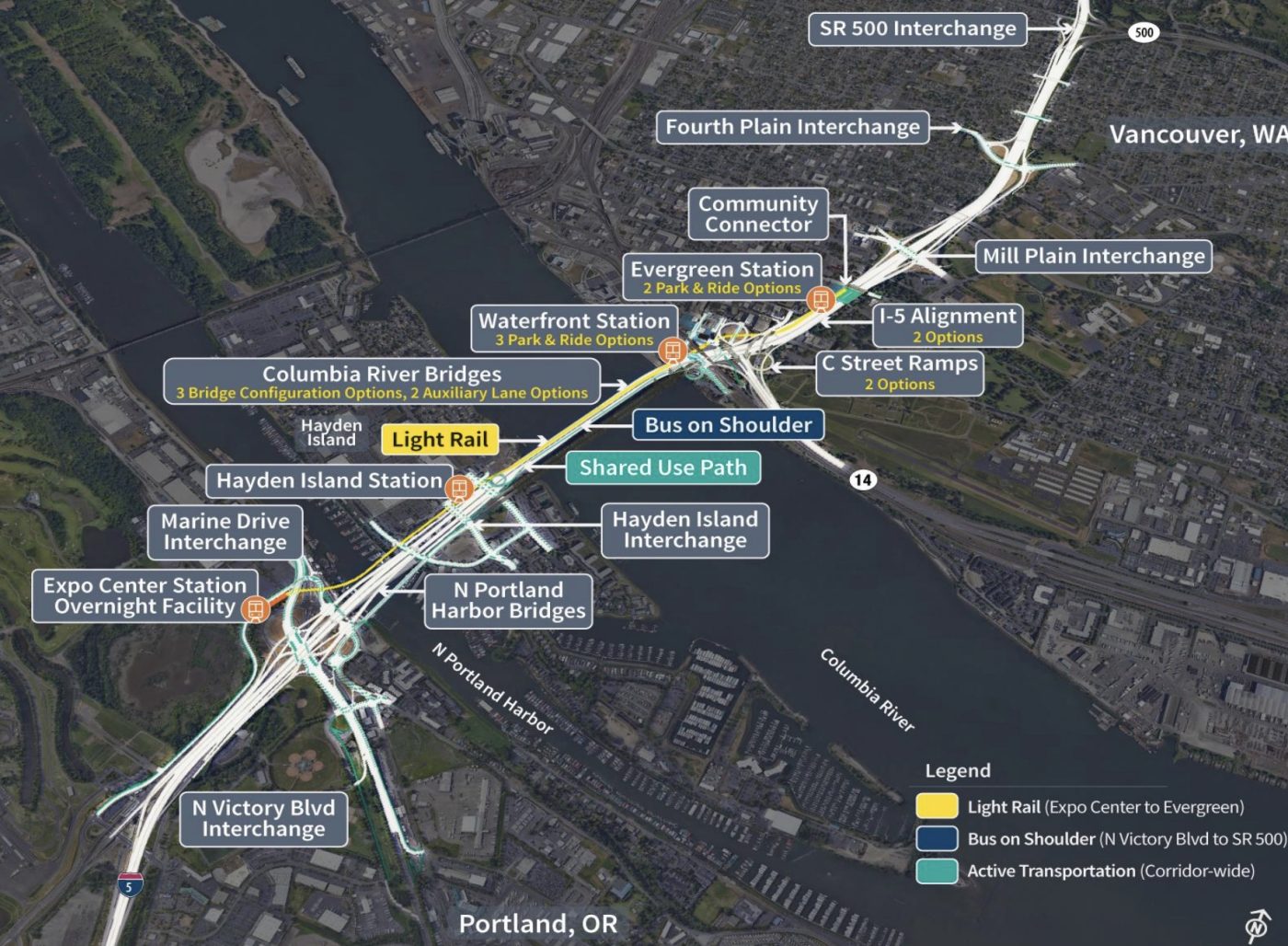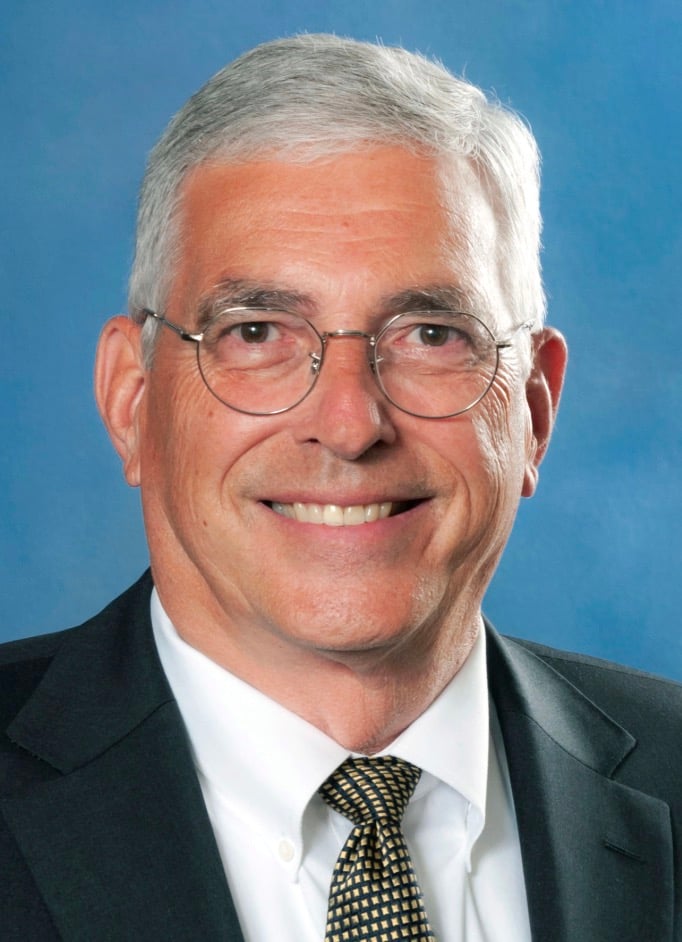In yet another ominous sign for the Oregon Department of Transportation, a member of the Oregon Transportation Commission voted “no” on the agency’s ambitious plan to expand five miles of I-5 between Portland and Vancouver.
It’s the first time an OTC member has ever voted against the project.
It happened at the OTC meeting Monday where commissioners were asked to approve a request by ODOT to add nearly $2 billion in funding to the Interstate Bridge Replacement Program (IBR). The funding has already been identified from a range of sources (including state general obligation bonds, future toll revenue, a federal grant, and so on) and the OTC was being asked to amend the Statewide Transportation Improvement Program (STIP) to reflect the additional funding.
“I also struggle with the notion that we’re putting $2 billion forward here without having an answer on what this bridge is going to look like… I can’t support the request based on wrong information.”
— Jeff Baker, Oregon Transportation Commission
While it was just a procedural step, Commissioner Jeff Baker was not having it. Baker (in photo below), a retired business executive who’s served on the commission since 2023, took issue with a presentation about the funding increase shared by IBR Assistant Program Administrator Ray Mabey. Mabey’s presentation included a slide (see below) that summarized results of the project’s cost benefit analysis. “For every dollar spent, you get a return of $1.41 in benefits,” Mabey said. “So at this current cost estimate, that’s a strong indication that our program is cost-effective.”
“Current cost estimate,” is doing a lot of work in that sentence because the IBR is working off what insiders understand to be a woefully outdated 2022 estimate that says the project will cost around $5 to $7.5 billion. Some critics believe the IBR is delaying a new estimate, which conventional wisdom says is likely to be upwards of $10 billion when it’s released in December.
At Monday’s meeting, it was clear Baker did not appreciate Mabey using that old number in the cost/benefit equation in the context of currying support for a significant funding increase.
“All of these [benefits] are formulated with cost,” Baker told Mabey at the meeting. “And we don’t know what the cost is… so to try to rely on these numbers today for this presentation, I really struggle with it, because I don’t think they’re accurate, and they won’t be accurate till we get our new costs.”
Prior to a vote on the amendment later in the meeting, Baker once again expressed his discomfort. “When you take a look at the benefits of this… They’re wrong today because we know there’s going to be a significant change within 60 days [when a new cost estimate has been promised]… I think it’s really important we know where the costs are going to be.”
“I also struggle with the notion that we’re putting $2 billion forward here without having an answer on what this bridge is going to look like, whether it’s going to be a fixed or movable span. So we’re uncertain as to what the bridge is going to be, and we’re uncertain as to what the costs are going to be,” Baker continued. “I can’t support the request based on wrong information that we know is wrong. I’d like to see us delay this question until such time as we get fresh data.”
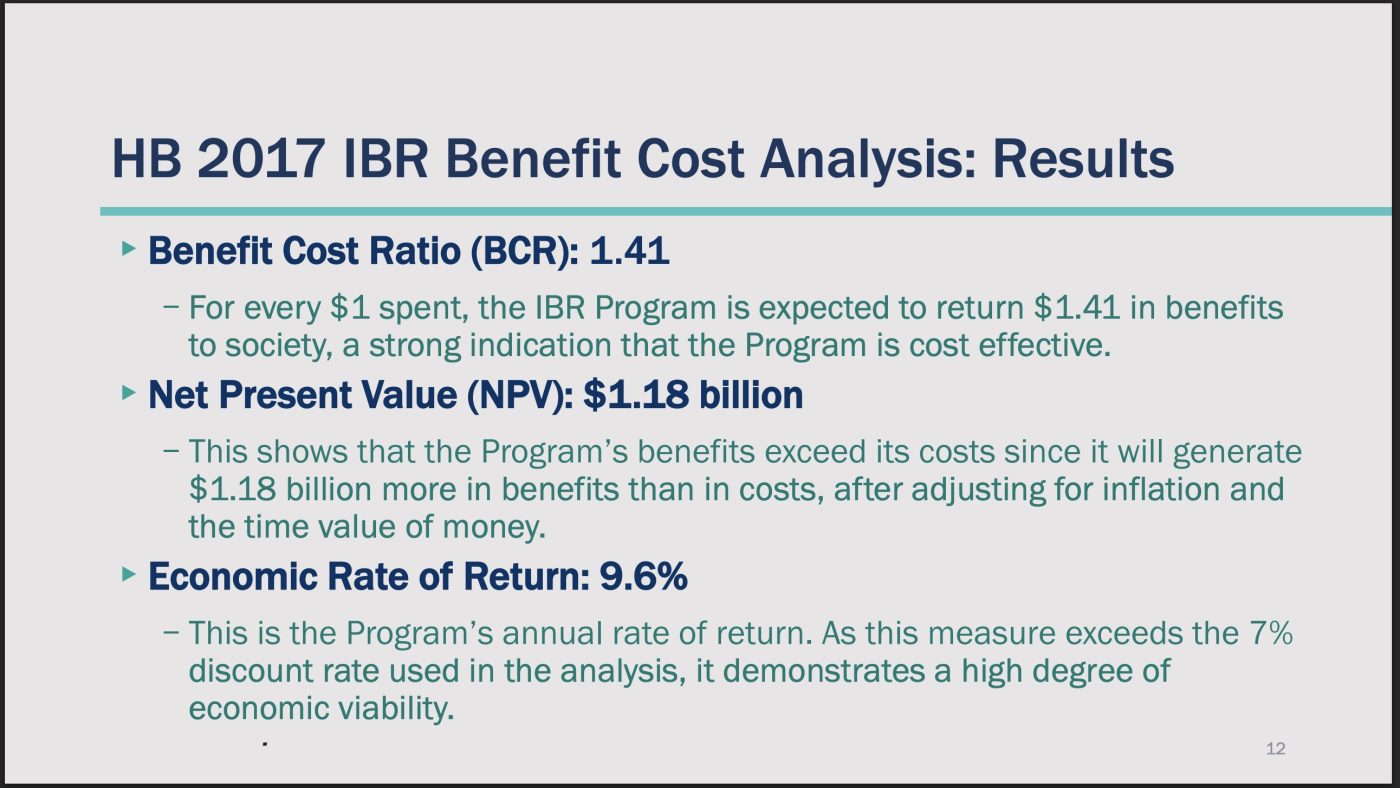
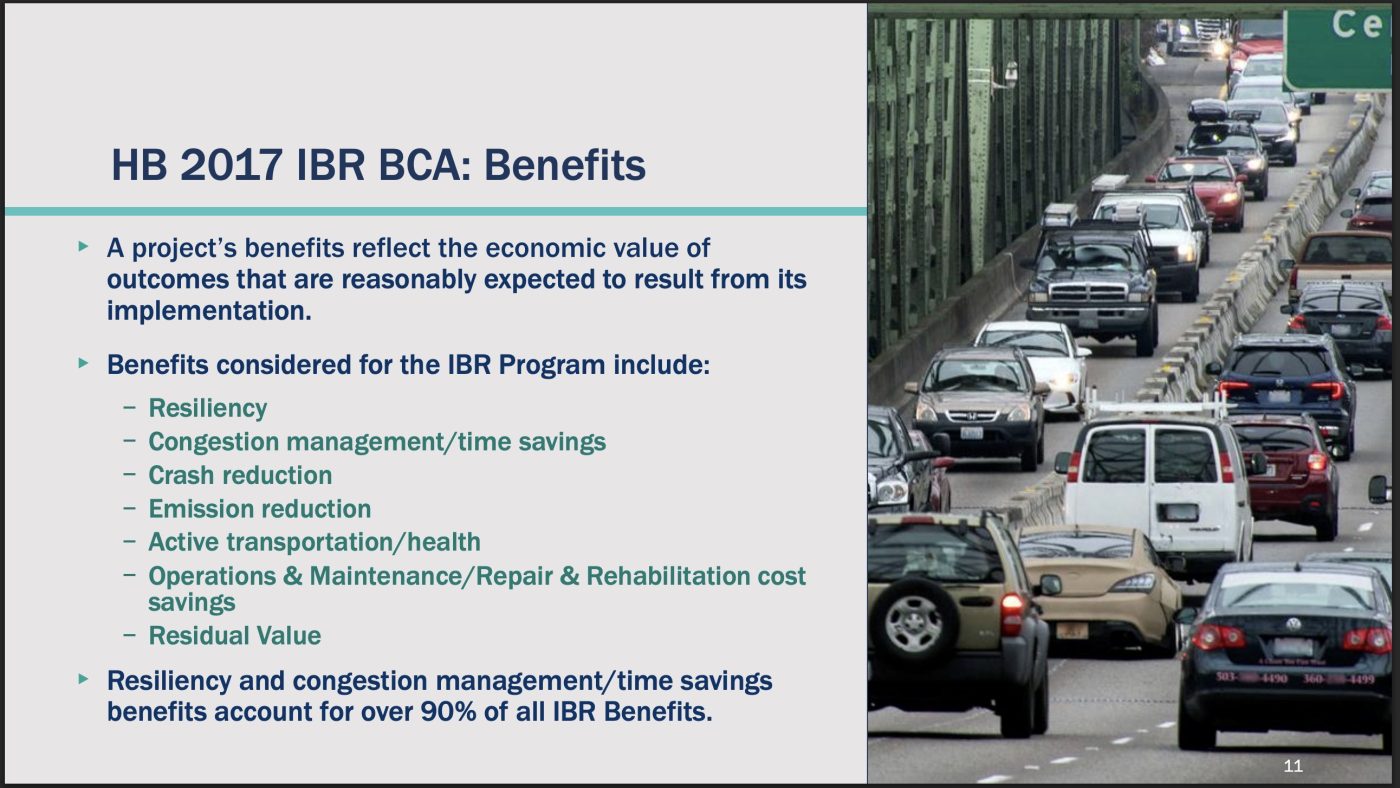
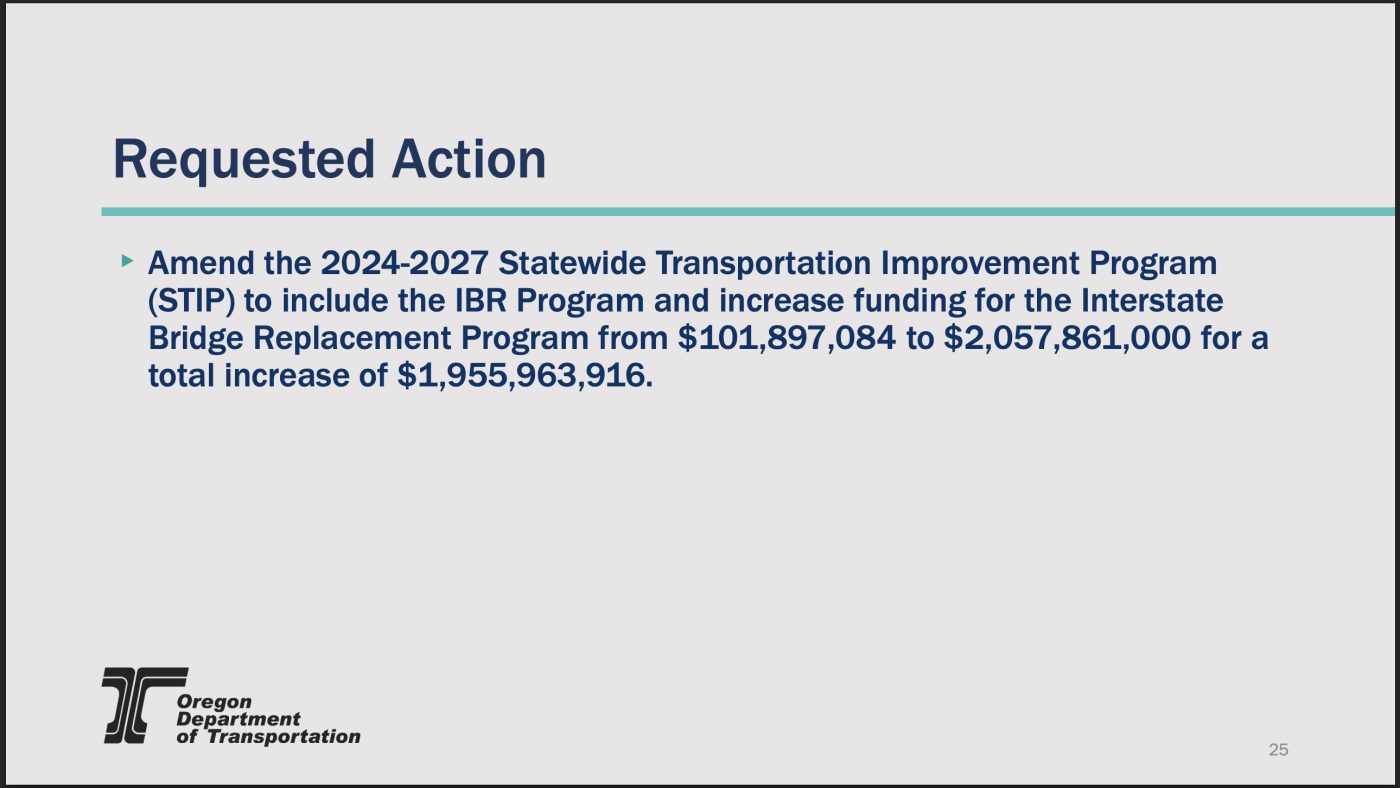
This might seem like a small thing, and this isn’t the first time an OTC member has had heartburn over the cost of this project. But given how tenuous the funding picture is for the IBR — with massive uncertainty at the federal level, critics ready to pounce, a touchy regional political landscape, and with ODOT operating under a fiscal microscope — actually voting “no” on a project of this scale that has this much bureaucratic inertia behind it, is unheard of. Baker asked to delay the funding increase request until the new estimate is revealed. But delay is kryptonite to these megaprojects.
The responses to Baker’s concerns from fellow OTC members, ODOT’s director, and IBR leaders underscore that point.
OTC Chair Julie Brown asked ODOT Director Kris Strickler how a delay would impact the project. “This is the last step of multiple steps,” Strickler said, after saying how they’ve already pushed the funding increases through many steps of the process and failure to approve it now and/or to create a delay, might spook regional or federal partners.
IBR’s Mabey said the funding is needed now because otherwise it would delay the project by another 6-8 months. “We still have to keep the lights on,” Mabey added, saying it would be unfair to project partners in Washington who’ve already committed their share to keep the project moving forward.
OTC Vice Chair Lee Beyer (a veteran of the IBR’s previous iteration, the Columbia River Crossing, which he was intimately involved with as a member of the Oregon Legislature) also pushed back on Baker’s concerns:
“The two states have been intimately considering this project for almost 30 years. Cost just keep getting higher. Had we acted on it in 2013 when the Oregon legislature approved it, we would be driving across the new bridge today, and it would have cost a third of what it would cost now.” Beyer added that while he respects Baker’s concerns, he’s just wants the darn thing built: “It’s time to get going. Go ahead and do it. I think people want it. We need it. We just need to do it.”
Outgoing IBR Administrator Greg Johnson refuted claims that the IBR is delaying the new cost estimate. He acknowledged that the lack of an updated cost estimate is a, “tough position to be in,” but said: “This [funding increase amendment] is a necessary step for the program to keep moving forward… this is something we need to get done.”
The funding request ultimately passed by a vote of 3-1 (with one commissioner excused), but Baker’s “no” and his unwillingness to go-along to get-along could be seen as a shot across the bow.
And Baker wasn’t the only one with serious concerns. In another interesting exchange on Monday, Chair Brown asked Mabey point-blank: “Is there any indication that the funding for light rail is going to be there? Are we getting a nod from the FTA [Federal Transit Administration]?
This is a fraught topic as the Trump Administration has already taken steps to kill major transit projects in progressive bastions such as Chicago and New York City.
“Great question,” Mabey answered. “It takes congressional action to actually fund the program. I don’t think that’s happened quite yet… We are making sure we are in the [design and engineering] process, and being in the process helps you get in the president’s budget.” “But it’s a different administration, and it is not behaving consistent with history in this area,” he added, carefully.
“At $1 billion, it’s a large transit project,” Brown interjected. “And conversations probably need to be happening, although maybe this administration is into building new infrastructure, we’ll see.”
“Maybe” is doing a lot of work in that sentence.

